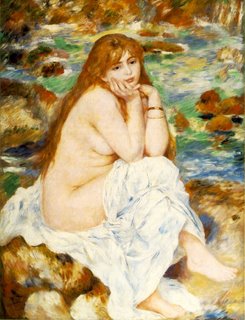Teaching success
How do you teach success?
In the editorial of today's Inquirer, the theory was presented: Filipinos should be taught how to be employers, instead of employees.
Easier said than done.
How exactly do you teach a people how to think for themselves? How to analyze objectively, without looking around for someone else to blame their plight on? Seems to me that it's not just entrepreneurial skills that the Filipino needs to learn.
The entire collective values system needs to be overhauled.
I don't know what it is that makes taking one's life in one's hands so terrifying. Is it the faith in a god who's supposed to be deciding what happens to a person's life? Fate, as understood by the Filipino, makes him a hapless, helpless creature of a supreme being. For him to learn success, he would have to unlearn dependence and patronage, be it on a god or a government.
The following is an excerpt. The full text can be found here.
Editorial : Wanted: employers
Inquirer
Posted date: November 27, 2006
IT MAY BE NO COINCIDENCE THAT ONE OF THE top two winners in the annual Microentrepreneur of the Year Awards, sponsored by the global banking giant Citigroup, did not finish her schooling. Or that the other top winner had to earn a living—as a maid—while going to school. The country’s educational system is still designed to produce employees, not future employers.
The experiences of Jennilyn Antonio of Sta. Rosa, Laguna and Consuelo Valenzuela of Baler, Aurora, however, make for excellent case studies in graduate school and for inspirational lessons for elementary and high school students.
The two women were chosen as this year’s best microentrepreneurs after a rigorous search by Citigroup and tight screening by a panel of distinguished business leaders. Antonio won first prize in the “Maunlad” category, for creating from scratch a peanut butter brand patronized by bakery chains; Valenzuela won first prize in the “Masikap” category for founding a handicrafts business using “sabutan” leaves.
What they have in common with each other and with eight regional winners is a sustainable business funded by micro-loans. A rural bank helped Antonio, for instance, while Alalay sa Kaunlaran Inc., a microfinance enterprise, extended four loans to Valenzuela.
The results: Antonio’s company sells P3.6 million worth of peanut butter a year; last year, it earned a net profit of half a million. Valenzuela sold sabutan-made products worth P500,000 last year, earning a tidy profit of P180,000. In all instances, the winners met the most stringent of all criteria: a 100-percent rate of repayment on their micro-loans.



0 Comments:
Post a Comment
<< Home